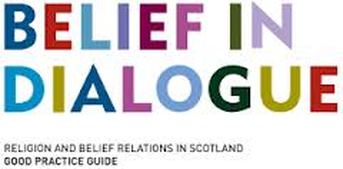
It is interesting that at the same time as this kind of conversation is going on others such as those involved in the Postcards from Scotland initiative are recognising the contribution of religion to health and well - being as it gives people meaning and purpose, helps them look outwards towards their neighbour and gives them a practice to support them in day to day living. I don't know of a religion that does not incorporate the Golden Rule nor see the essence of its faith as service to others. Do the detractors of religion know what actually happens within faith communities? Do they know of the work of interfaith relations that brings together people of different faiths to explore differences as well as commonalities. This kind of activity allows people to move beyond tolerance to respect and appreciation of different beliefs and views.
While I appreciate the contribution of religion to society I would not want to live in a religious state. I too uphold a secular state but one in which all views are respected, people are able to speak and contribute to society from their own value base, and all are committed to the common good. A few years ago the Scottish Government published a document called Belief in Dialogue. The purpose was to develop good relations between religion and belief groups in keeping with equality legislation. As the document was being written it became clear that it was not possible to see religion and belief as separate. Everyone has beliefs, some religious and some non-religious. Secularist and humanist beliefs are beliefs in much the same way as religious beliefs are so should they also be relegated to the private and personal sphere? And as it is possible to get fundamental religious people so it is possible to get fundamental secular people. What is the answer? Not to deny anyone the right to express their views but to encourage dialogue between these different views because, as Belief in Dialogue says, dialogue is the building block of a healthy society.


 RSS Feed
RSS Feed
